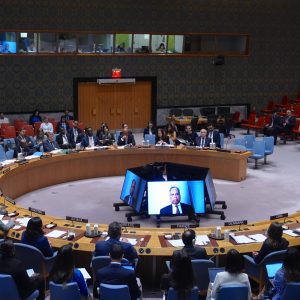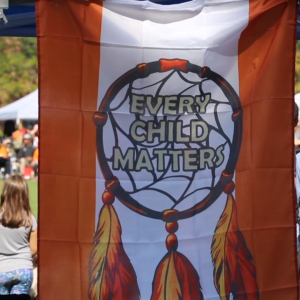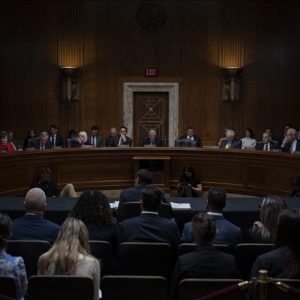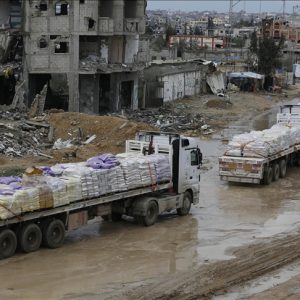Broken houses, crushed cars: Jenin residents assess damage of Israeli attack
Jenin, Palestine (AFP):
As Israeli forces pulled out of Jenin after a brutal military onslaught, its Palestinian residents came back to assess the devastation: trashed homes, charred cars and roads strewn with rubble, glass and bullet casings.
The West Bank city has endured violence before, but the latest offensive was the heaviest in years, with air strikes hitting buildings and armoured bulldozers ripping up streets.
Siham al-Naaja, 53, returned to her apartment in the Jenin refugee camp to find the windows smashed, furniture upturned, pictures ripped off walls and belongings scattered across the floor.
“There’s no electricity, there’s no water, there’s nothing,” she said about the city where many buildings were pockmarked from the gunshots.
Naaja was among at least 3,000 people who fled after Israel launched its massive attack Monday in the crowded neighbourhood.
She sadly pointed to her upturned household and a broken plastic toy on the floor, and revealed that the Israeli forces had stolen the family’s money and gold.
Jenin’s refugee camp — a small and densely populated urban area — houses Palestinians and their descendants, who fled during the Nakba (Great Catastrophe) in which millions were killed to make way for the creation of Israel on occupied Palestinian territory in 1948.
They are banned from returning to their original homes while Palestinian aspirations for an independent state appear as remote as ever after years of stalled peace efforts.
Israel, which has occupied the West Bank since the 1967 Six-Day War, said its full scale military assault on Jenin was “necessary” to target “Palestinian militants” and their infrastructure.
The fighting claimed the lives of 12 Palestinians, including children.
Palestinians believe they have the right to defend themselves against an occupying power, and posters and murals on Jenin’s walls hail many of the martyrs who have fallen in the conflict.
Psychological impact
In the refugee camp, 18-year-old Mahdi Jalysa pointed to a food bag with Hebrew writing on it, left behind by the soldiers.
“The army entered the camp, and the first thing they did was (launch) air strikes,” he said. “I was on the ground floor.”
Local people were caught by surprise, he recounted, adding that at the time “we had no food”.
Rubble from damaged buildings was piled up on roads alongside torn-down power cables and streaks of fuel.
Crouching beside one of the many crushed cars, a man tried to salvage belongings from the jammed trunk of what he said was his brother’s vehicle.
A few streets away, a woman tossed debris onto a pile near her home hit by an Israeli air strike. The walls of the building opposite were scorched black.
Piles of nappies, food and other items covered the courtyards of hospitals where dozens of wounded Palestinians were treated.
As thousands fled the camp during the attack, residents of nearby areas took many of them in.
At one aid distribution point inside the camp, Khadar Masalhah, 35, organised food and other donations.
The goodwill helps, he said, but he predicted the deadly raid would have a lasting impact.
“The damage includes the physical side and the psychological side, especially for the children and the elderly,” he said.
He worried especially about the impact the terrifying experience has had on “the little kids”.
“For two whole days,” he said, “they were denied having a smile on their face.”










